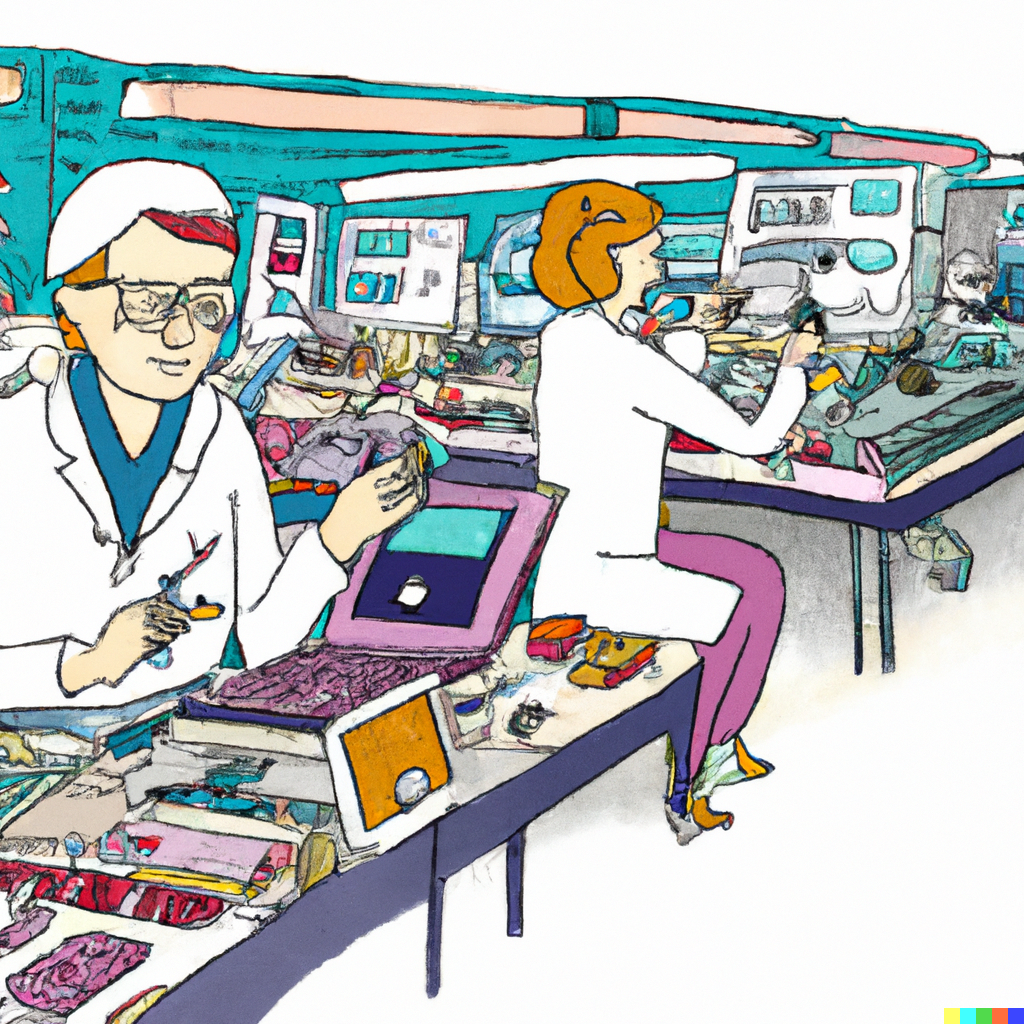Duality is United States’ first accelerator program solely dedicated to assisting early-stage quantum startups. The program was launched in 2021 and is led by the University of Chicago’s Polsky Center for Entrepreneurship and Innovation and the Chicago Quantum Exchange, University of Illinois Urbana-Champaign, Argonne National Laboratory, and P33 as founding partners.
The 12-month program is similar to the Creative Destruction Lab Quantum Accelerator, which involves a four-week rigorous technical and business quantum bootcamp led by industry and academic leaders in quantum technologies and machine learning, followed by five goal-setting workshops spread out over eight months.
Furthermore, Duality is made possible through the goodwill and assistance of their corporate partners, AWS and Caruso, and in-kind partners, including MBHB, Lathrop, Silicon Valley Bank, and TOPTICA.
Polsky Center For Entrepreneurship And Innovation
The Polsky Center, founded at Chicago Booth in 1998, is a multidisciplinary organization staffed with deeply experienced scientists and business executives responsible for driving technology commercialization at the University of Chicago through patents, new venture creation, and commercial partnerships.
The Polsky Center provides key tools to assist the success of entrepreneurs and the development and growth of new businesses through education, programming, mentorship, intellectual property, and venture support.
Chicago Quantum Exchange (CQE)
The Chicago Quantum Exchange brings top academic talent, modern scientific facilities, and notable business and charity partners to develop quantum information science and engineering and train the future’s quantum workforce. It is headquartered at the University of Chicago Pritzker School of Molecular Engineering and supported by:
- The University of Chicago
- Argonne National Laboratory
- Fermi National Accelerator Laboratory
- The University of Illinois Urbana-Champaign,
- The University of Wisconsin-Madison,
- Northwestern University, and more than two dozen industry, nonprofit, and international partners.
Argonne National Laboratory
Argonne National Laboratory is a multidisciplinary scientific and engineering research facility where exceptional scientists and engineers collaborate to tackle some of humanity’s most pressing challenges. They lead Q-NEXT, a Department of Energy (DOE) Quantum Information Science Research Center that comprises three national labs, nine universities, and ten of the world’s premier quantum technology companies in the US.
University Of Illinois Urbana-Champaign
The University of Illinois at Urbana-Champaign is a global leader in quantum physics, deep technology, and entrepreneurship. The institution is home to the Illinois Quantum Information Science and Technology Center and premier physics, computer engineering, and computer science schools.
The university’s Enterprise Works program was named one of Forbes magazine’s “10 Technology Incubators Changing the World.”
P33
P33 is a privately funded nonprofit launched in 2019 with a plan to harness the economic potential of quantum information science in Chicago. They form collaborations with partners from academia, business, and national labs to help position Illinois as a global leader in quantum information science.
In 2021, Duality Quantum Accelerator accepted six startups into the inaugural cohort, namely:
- QuantCAD, a startup run by Michael Flatte in Iowa City. They are developing simulation software for modeling noise and current in quantum devices such as high-resolution quantum sensors.
- Quantopticon, a UK-based startup creating simulation software for designing and improving quantum optical systems.
- Super.tech, a Chicago-based firm founded by Pranav Gokhale. They’re developing software that speeds quantum computing applications by optimizing the whole system stack, from algorithms to control pulses.
- Carol Scarlett’s business, Axion Technologies, is creating a quantum random number generator for high-performance computer systems.
- Keith Evans’ business, Great Lakes Crystal Technologies, is developing a commercial production technique for semiconductor-grade diamond materials for photonics, electronics, and quantum technology applications.
- Kanav Setia, CEO of qBraid, is building a cloud-based platform enabling controlled access to other quantum computing software and hardware.
In June 2022, Duality accepted five startups into the second cohort. These companies are:
- Icosa Computing, a startup established in the United States that develops quantum computing and physics-enhanced optimizers for financial institutions.
- memQ, a US-based firm that is developing technologies to enable quantum internet.
- Quantescence, a quantum computing software firm in France and the United States, has developed a quantum emulator platform.
- SCALINQ is a Swedish firm researching novel packaging methods for superconducting quantum devices.
- Wave Photonics, a UK-based firm that uses computational methodologies to expedite integrated photonics design.
These companies were chosen from a pool of applications worldwide and validated through an internal review process. Each startup in Cohort 1 received $50,000 in unrestricted funding and coaching from leading quantum specialists.
Selected startups also have access to some of Chicago’s cutting-edge equipment and facilities for advanced computing, nanofabrication, atomic scale measurement, quantum testbeds, and other premier resources from the University of Chicago, University of Illinois Urbana-Champaign, and Argonne National Laboratory.
Duality startups also receive formal education and entrepreneurial training from University of Chicago Booth School of Business and Polsky Center employees throughout the program’s first three months. They also participate in “Corporate Collision,” an in-depth industry feedback session. This two-day, invitation-only expo offers the founders an opportunity to interact with corporate partners.
Startups also learn about market demands and constraints, which they transform into company development opportunities that can be solved with quantum technology.

